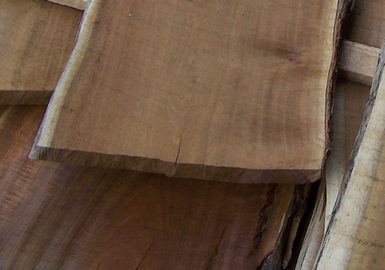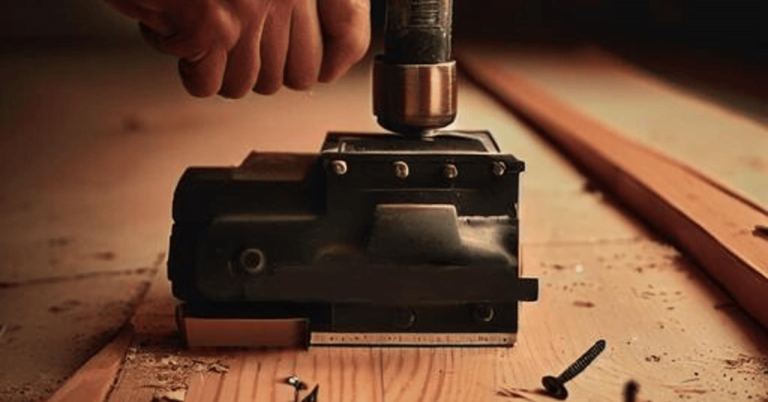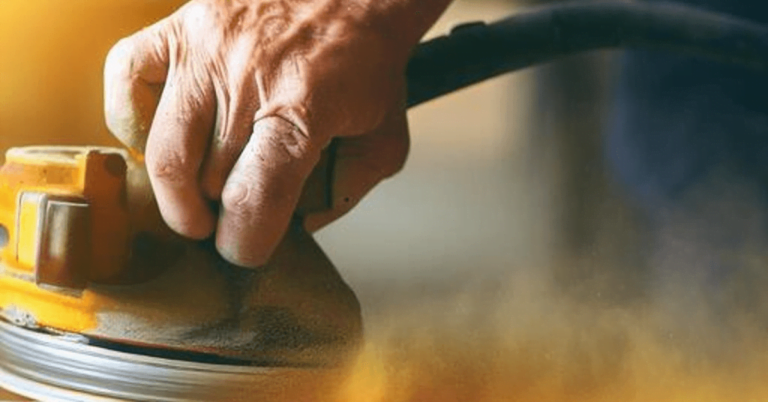How To Remove Glue From Hardwood Floors Naturally
If you have hardwood floors in your home, you know the beauty and elegance they bring to any room. However,…
If you have hardwood floors in your home, you know the beauty and elegance they bring to any room. However, accidents can happen, and sometimes you may find yourself with a stubborn glue stain on your beautiful hardwood floors.
Whether it’s from a DIY project or a spill, removing glue from hardwood floors can be a daunting task. But fear not, because there are natural and effective ways to remove glue stains from hardwood floors without damaging the surface.
In this article, we will share our tried and tested methods for removing glue stains from hardwood floors using natural ingredients that won’t harm your flooring. From vinegar and water solutions to baking soda paste and rubbing alcohol, we’ve got you covered with all the information you need to know to safely and effectively remove glue stains from your hardwood floors.
So, let’s get started and learn how to restore the natural beauty of your hardwood floors without harsh chemicals or expensive cleaners.
Identifying the Type of Glue Stain
By identifying the type of adhesive residue present on your hardwood flooring, you can tailor your cleaning approach to effectively treat the stain without causing any damage.
There are various identifying techniques that you can use to determine the type of glue stain on your floor. For instance, if the stain is white, it could be a water-based glue, while a yellow or brown stain may indicate a solvent-based adhesive.
Once you have identified the type of glue stain, you can then choose the appropriate removal strategies. For water-based glue stains, you can use a mixture of warm water and soap to soften the glue before wiping it away with a damp cloth. Solvent-based adhesive stains may require a stronger solution such as vinegar or rubbing alcohol.
It’s important to test any cleaning solution on an inconspicuous area of the floor before applying it to the stain.
In addition to identifying the type of glue stain and selecting the right removal strategies, it’s essential to take preventive measures to avoid future damage. For instance, placing rugs or mats in high traffic areas can help reduce wear and tear on the hardwood floor. Also, avoid using harsh chemicals or abrasive cleaning tools that can scratch or damage the wood.
By following these tips, you can effectively remove glue stains from your hardwood flooring naturally without causing any harm.
Using Vinegar and Water Solution
Using a simple solution of vinegar and water can be an effective and eco-friendly way to clean up sticky messes on your beautiful hardwood surfaces. This DIY hardwood cleaning solution is a great alternative if you’re looking for eco-friendly cleaning alternatives that won’t damage your floors.
Here’s how to remove glue from hardwood floors using vinegar and water:
- Mix equal parts of white vinegar and warm water in a spray bottle. Shake well to combine.
- Spray the solution onto the glue stain on your hardwood floor. Be sure to cover the entire area with the solution.
- Let the solution sit for a few minutes to penetrate the glue stain. Then, use a soft-bristled brush or a clean cloth to gently scrub the area. Repeat as necessary until the glue stain is removed.
Using vinegar and water is a great natural alternative to harsh chemicals that can damage your hardwood floors. It’s also a cost-effective solution that won’t harm the environment. If you’re looking for other eco-friendly cleaning alternatives, you can also try baking soda and water or lemon juice and water. These natural solutions are great for removing stains and dirt from hardwood flooring without causing any damage.
With a little bit of effort and the right ingredients, you can keep your hardwood floors looking beautiful and clean for years to come. In addition to being eco-friendly, using vinegar and water to remove glue from hardwood floors is also a safe solution for your family and pets. You don’t have to worry about harmful fumes or toxic chemicals that could harm your health or the environment. Plus, you can feel good knowing that you’re using a natural and sustainable solution to clean your home.
So, the next time you have a sticky mess on your hardwood floors, try using vinegar and water to remove it. You’ll be amazed at how effective and easy it is!
Applying Baking Soda Paste
Get ready to experience a satisfyingly clean and refreshed surface by trying out this baking soda paste solution for those pesky sticky messes. Baking soda is a versatile natural cleaning agent that’s been used for centuries, and it’s especially effective in removing glue from hardwood floors. This solution is not only cost-effective but also environmentally friendly, making it a great alternative to harsh chemical cleaners.
One of the benefits of baking soda is that it’s a natural abrasive, which makes it perfect for removing stains and grime from hardwood floors. To make a baking soda paste solution, mix equal parts baking soda and warm water until it forms a paste.
Then, apply the paste directly onto the glue stain and let it sit for about 15 minutes. Afterward, use a soft brush or cloth to gently scrub the area, and then wipe it clean with a damp cloth.
When applying the baking soda paste solution, it’s important to do a spot test first to ensure that it won’t cause any discoloration or damage to your hardwood floors. Additionally, be sure to use a soft-bristled brush or cloth to avoid scratching the surface.
With these DIY application tips and natural cleaning alternatives for hardwood floors, you can easily remove glue and other sticky messes without damaging your floors.
Utilizing Rubbing Alcohol
You’ll be amazed at how easily rubbing alcohol can clean up those pesky sticky messes on your beautiful hardwood surfaces. Not only is it an effective and natural solution, but it also won’t cause any damage to your floors.
However, if you don’t have rubbing alcohol on hand, there are a few alternatives you can use such as vinegar, lemon juice, or even mayonnaise.
To get started, simply dampen a cloth with rubbing alcohol and gently rub it onto the glue stain. It’s important to avoid using too much alcohol as it can strip away the finish on your hardwood floors.
If the glue is particularly stubborn, you can try using a plastic scraper to gently scrape away the excess glue before applying the rubbing alcohol.
It’s worth noting that rubbing alcohol can also be used to remove glue from other surfaces such as glass or plastic. All you need to do is apply a small amount of rubbing alcohol onto a cloth and gently rub the glue until it dissolves.
With a little bit of patience and elbow grease, you can remove even the toughest glue stains from your hardwood floors and other surfaces.
Protecting and Maintaining Your Hardwood Floors
Maintaining the beauty of your hardwood floors is essential, and there are a few simple steps you can take to protect them and keep them looking their best for years to come.
Here are some tips to help you prevent scratches and choose the right cleaning products for your hardwood floors:
-
Protect your floors from scratches by placing felt pads under furniture legs, using rugs in high-traffic areas, and avoiding wearing shoes with high heels or hard soles on your hardwood floors.
-
When it comes to choosing cleaning products, avoid using harsh chemicals or abrasive cleaners that can damage the finish of your floors. Instead, opt for gentle cleaners specifically designed for hardwood floors, or make your own natural cleaning solution using ingredients like vinegar, lemon, or baking soda.
Remember to take care of your hardwood floors regularly to ensure they stay in top shape. This can include sweeping or vacuuming them regularly to remove dirt and debris, wiping up spills immediately to prevent stains, and scheduling professional maintenance and refinishing as needed.
By following these simple steps, you can keep your hardwood floors looking beautiful and protect them from damage for years to come.
Conclusion
In conclusion, removing glue from hardwood floors can be done naturally using accessible household items. However, it’s important to identify the type of glue stain and choose the appropriate method for removal.
Vinegar and water solution can be effective for minor stains, while baking soda paste can be used for more stubborn ones. Rubbing alcohol can also be utilized for tougher glue stains.
Once the glue stain has been removed, it’s important to protect and maintain your hardwood floors by avoiding harsh chemicals and using gentle cleaning solutions. Regular sweeping and mopping can help prevent future damage and maintain the beauty of your hardwood floors.
With these natural solutions and proper maintenance, your hardwood floors can remain pristine for years to come.



